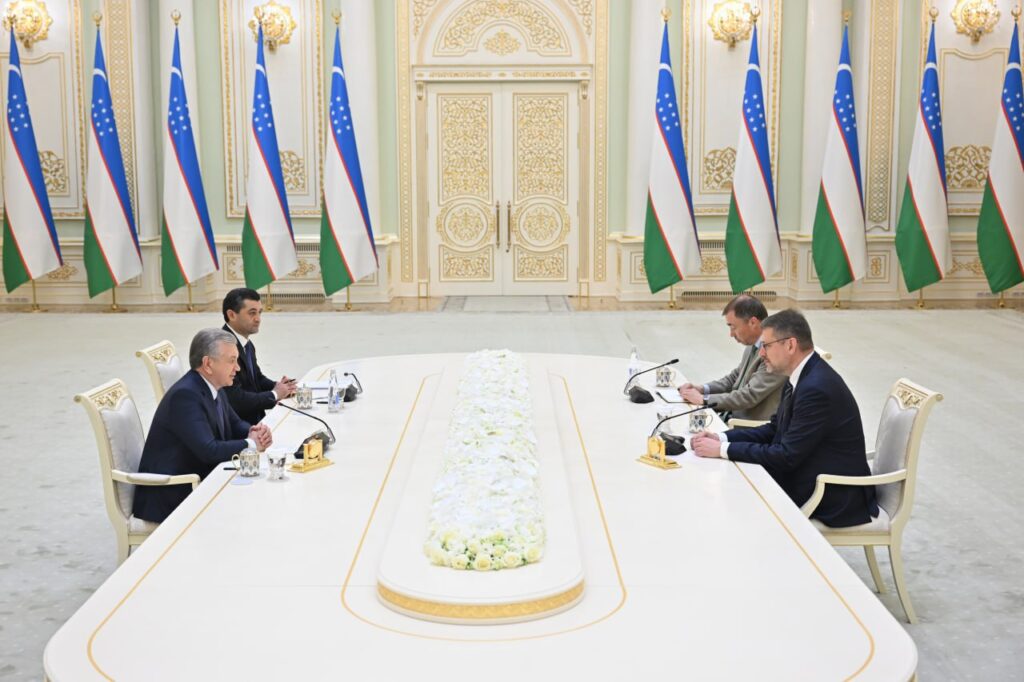M360 Eurasia Opens in Tashkent with Emphasis on Digital Growth
The GSMA M360 Eurasia conference officially opened on May 21 in Tashkent, marking the event’s first ever appearance in Uzbekistan. The gathering brought together telecommunications leaders, digital experts, and policymakers to explore how mobile technologies can fuel economic development and enhance quality of life across Eurasia. A key highlight of the opening day was the launch of the GSMA Mobile Economy Eurasia 2025 report. According to the findings, mobile services and technologies contributed $220 billion to the Eurasian economy in 2024, equivalent to 7.7% of the region’s GDP. That figure is projected to rise to $270 billion by 2030, comprising 8.3% of GDP. GSMA Director General Vivek Badrinath addressed the opening ceremony, underscoring the economic impact of connectivity. “Connectivity is a powerful engine of economic growth and a catalyst for transforming businesses and public services across the region,” he said. Badrinath emphasized that mobile technologies are already driving efficiency across Eurasia and will play an even greater role in the years ahead. Bridging the Digital Divide The first day’s sessions focused on mobile internet expansion, 5G deployment, and the application of artificial intelligence (AI) in daily life. Speakers presented data and personal stories illustrating both achievements and obstacles. A recurring theme was the disparity between mobile coverage and actual usage. While mobile internet now reaches two-thirds of the population (164 million people), approximately 80 million individuals still do not use it, despite living in areas with available access. The gap, experts noted, stems from issues such as affordability, digital literacy, and lack of awareness. John Giusti, GSMA’s Chief Regulatory Officer, stressed the urgency of inclusive digital policies. “How do we ensure digital transformation benefits everyone? We cannot afford to leave anyone behind,” he said. Giusti praised Uzbekistan’s Digital 2030 strategy as a model, citing the rapid expansion of 5G to all regional centers, enhanced internet bandwidth, and improved governance. Uzbekistan has led the region in progressive spectrum policy, being the first to allocate the 700 MHz band for broadband and to distribute parts of the C-band at no cost, steps that accelerated the country’s 5G rollout. “Forward-looking policies like these enhance service quality and contribute to economic growth,” Giusti added. Digital Reform in Uzbekistan Sherzod Shermatov, Uzbekistan’s Minister of Digital Technologies, outlined the country’s transformation. “In 2017, internet access was limited, expensive, and unavailable in many areas. Today, every school, hospital, and remote village has internet access,” he said. “Our focus is not just on availability, but also on affordability and quality.” Shermatov detailed the government’s efforts to digitize public services, support IT businesses through tax incentives, and upskill the workforce. “We are creating an environment where digital businesses can thrive,” he said, adding that the number of tech companies per million people has more than tripled since 2017. The minister also highlighted new services for persons with disabilities and the expansion of digital public services, reinforcing the country’s commitment to inclusive digital development. Showcasing Innovation A standout feature of the conference was the GSMA Foundry demo pod, which showcased...






